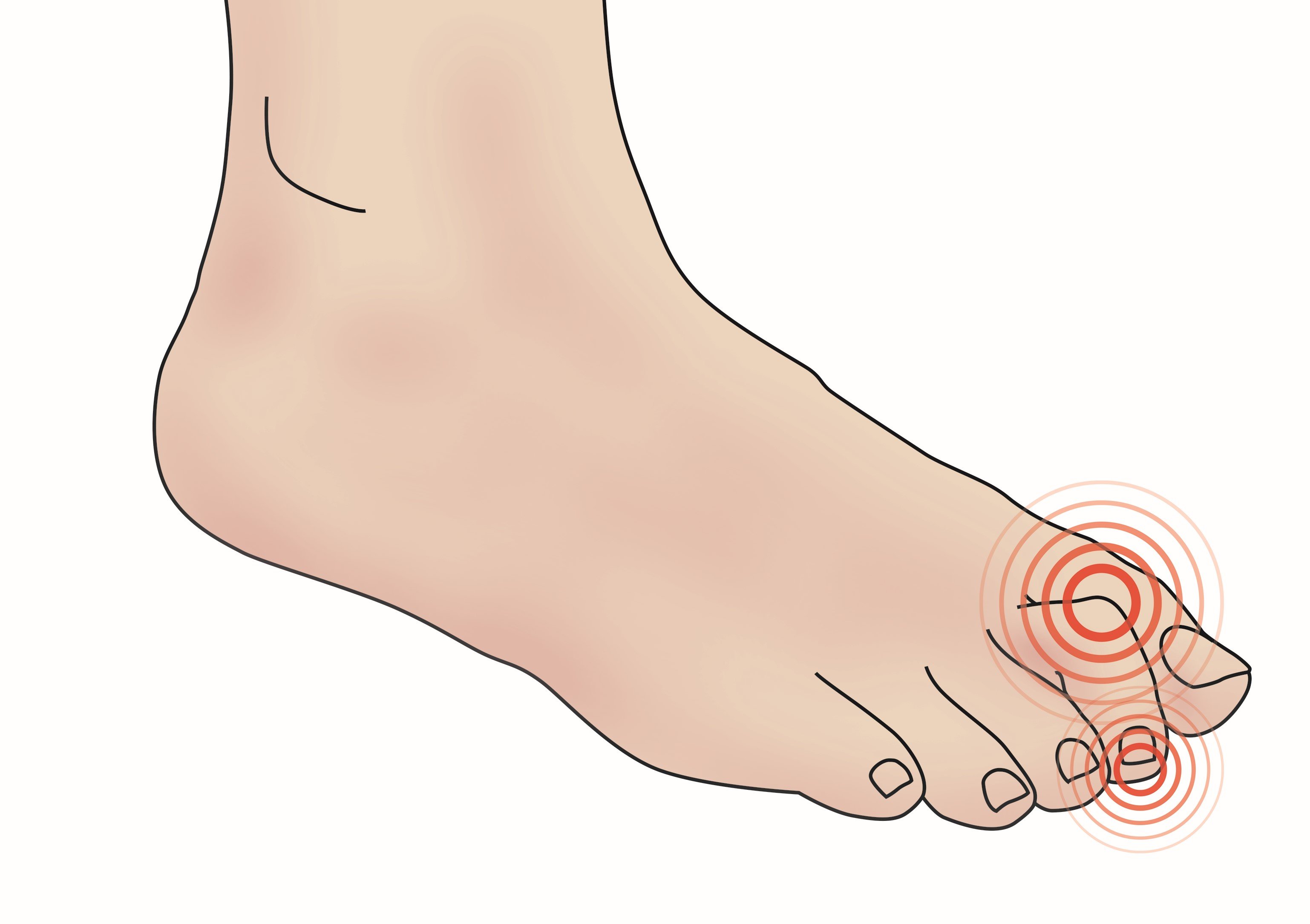Why Are My Toes Crooked?
Everything you need to know about crooked toes.
Crooked toes can appear in several forms and include overlapping, hammer, claw and mallet toes. These ailments can be unsightly, uncomfortable and painful.
Overlapping Toes
Overlapping toes are characterized by one toe lying on top of an adjacent toe. The reddened areas on either side of this foot illustration show what overlapping toes might look like.
When the big toe is bent (deviated) towards the minor toes (see Bunion) it is common to experience irritation between the big toe and 2nd toe.

Bent Toes
What Causes Bent Toes?
When ligaments and tendons in the toe tighten and cause the toe joints to stay bent, the condition is called hammer toe (sometimes called mallet toe or claw toe, the distinction being which joints are affected). A hammer toe affects the first two joints of the toe, causing the toe to bend and raise the second knuckle upward.
A mallet toe affects the last joint at the end of the toe, causing the knuckle closest to the toenail to bend and point the toe tip downward. A claw toe looks like a combination of a hammer toe and a mallet toe. It affects all three joints of the toe, causing the second knuckle to bend upward and the last knuckle to curl underneath it with the toe tip pointing downward.

Flexible vs. Rigid Hammer Toes
When selecting a product for your bent toe (s), the most important factor is whether the toe(s) are flexible enough to be straightened out. A flexible hammer toe can be held in position to reduce interference with the adjacent toes and footwear.
Because a rigid hammer toe cannot be restrained or flattened, it can be very painful when walking. PediFix® makes a variety of products designed to help with flexible hammer toes.
Recommended PediFix® Hammer Toe Solutions:
- Hammer Toe Crests (#8154)
- FELTastic® Hammer Toe Cushion (#P54)
- Visco-GEL® Hammer Toe Cushion (#P53)
- ToeSnug® Adjustable Hammer Toe Wrap™ (#P8163)
- Visco-GEL® 3-Loop Hammer Toe Cushion (#P1036)
- Visco-GEL® Adjust-A-Loop™ Hammer Toe Crests (#3037)
- Forefoot Compression Sleeve™ (#6027)
- Pedi-Smart® Toe Trainers® (#P51)
- Visco-GEL® 5-ToeBuddy® (#P1114)
- "4 in 1" Super Soft Toe Cushions™ (#P83)
- Podiatrists' Choice® Double Toe Straightener (#P57)
- Podiatrists' Choice® Toe Straightener (#P55)
- Podiatrists' Choice® Triple Toe Straightener (#P58)
- Visco-GEL Sport Toe Cap (#P78)
- Visco-GEL® ToeCoach™ (#P2853)
- Visco-GEL® Toe Cap (#P80)
- Visco-GEL® Customizables® Hammer ToeCrutch® (#1037-CTZ)
- Visco-GEL® Toe Protector (#P82)
- Visco-GEL® Hammer ToeCrutch® (#P1037)





